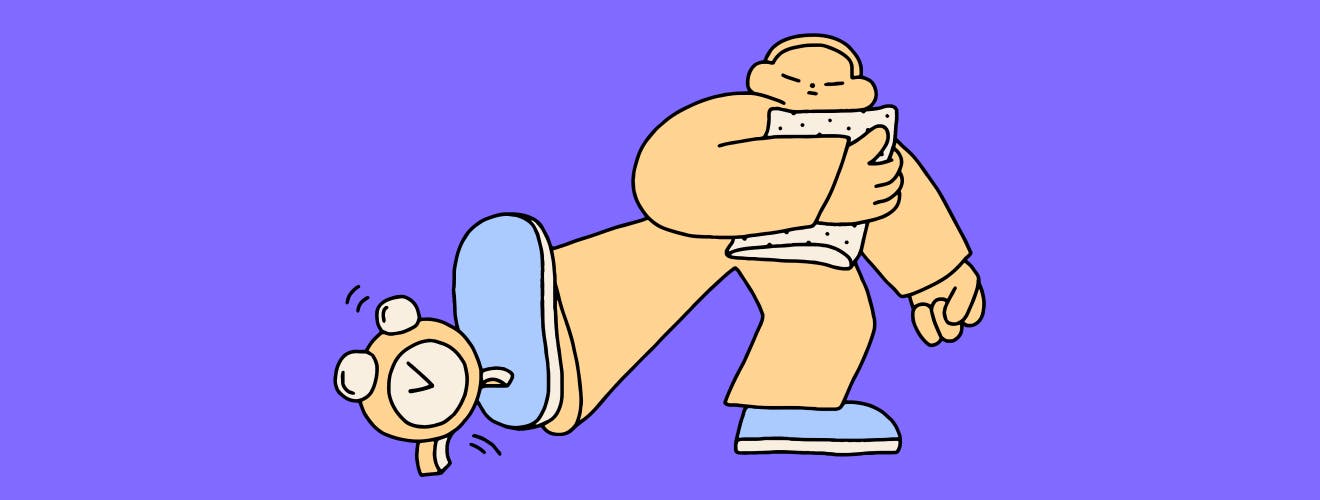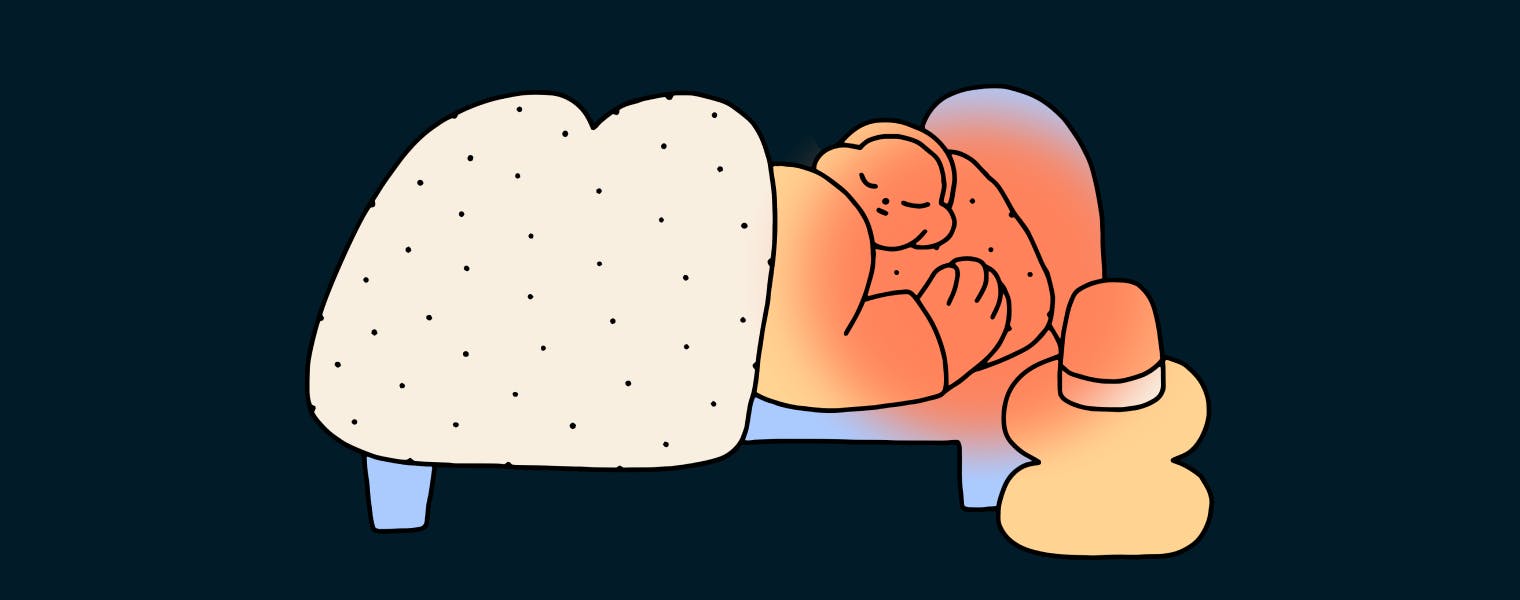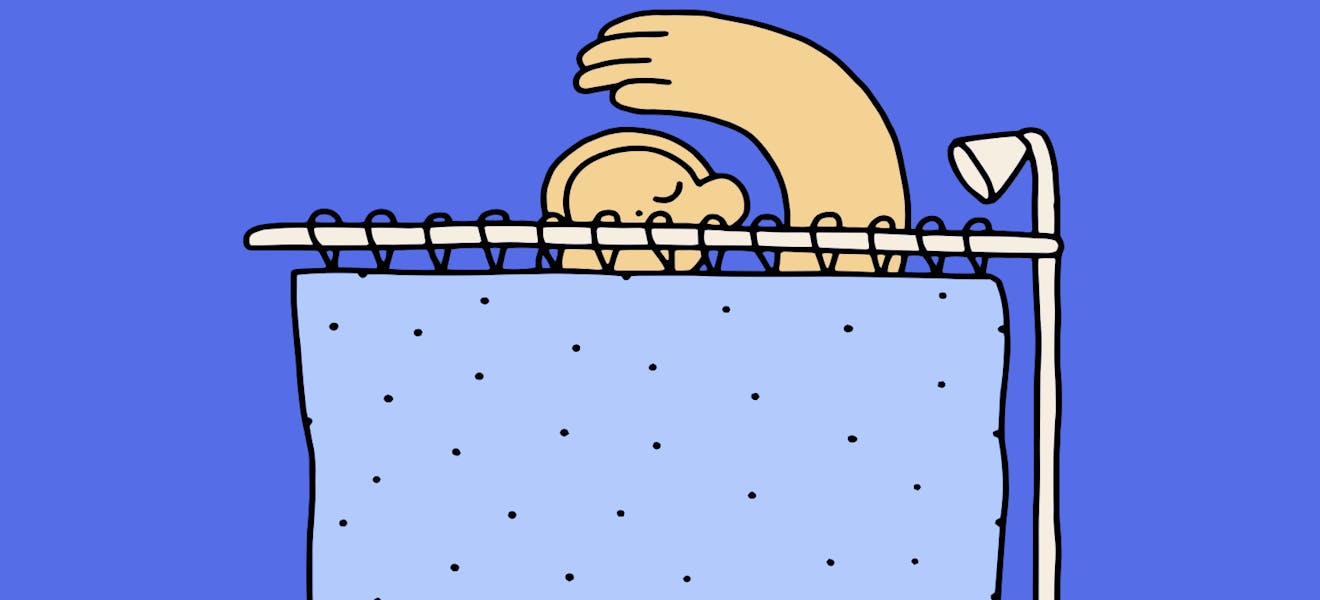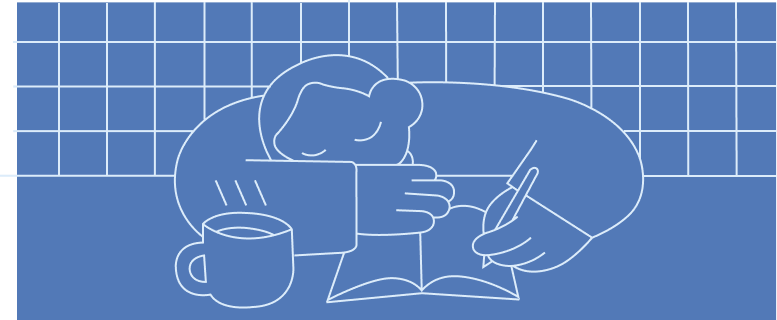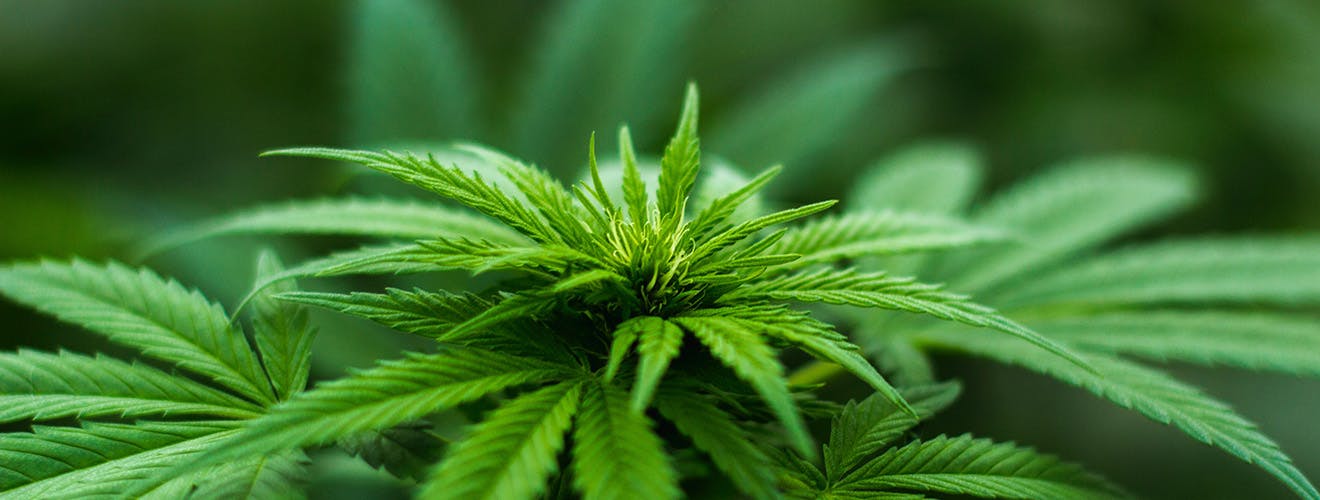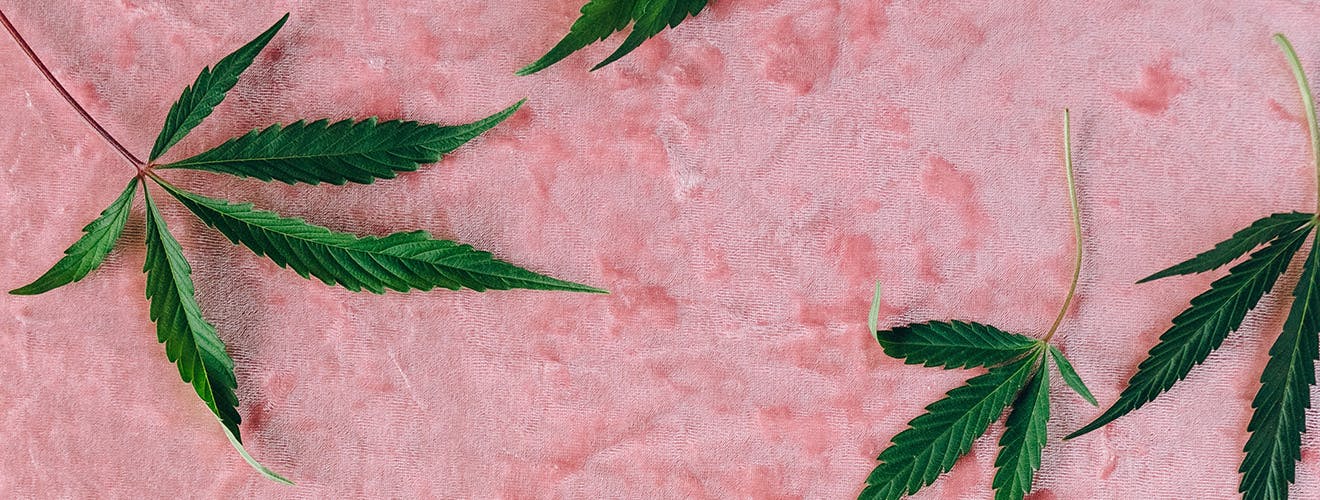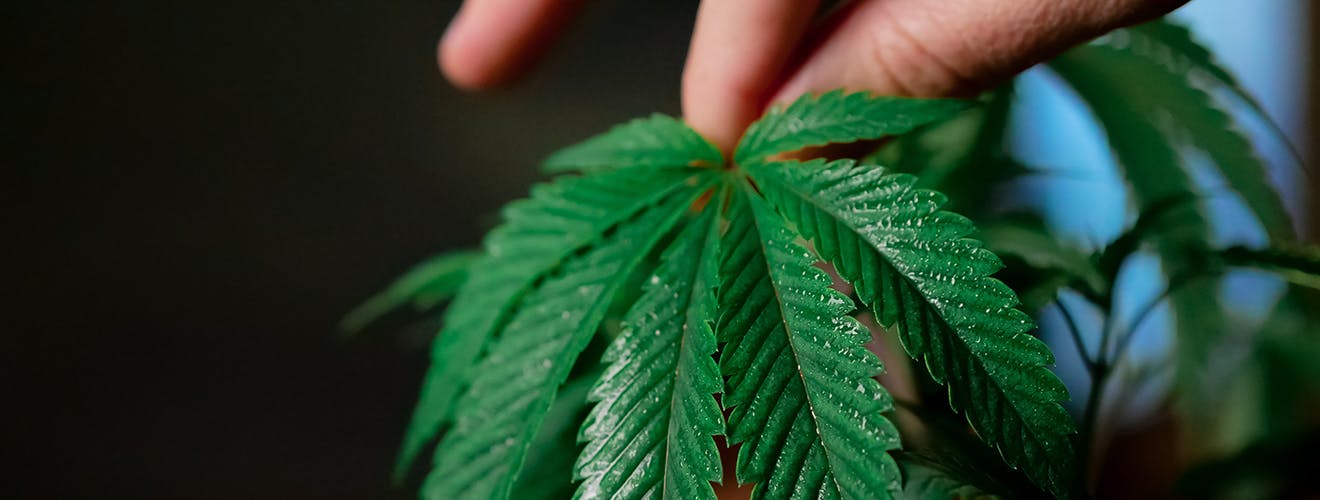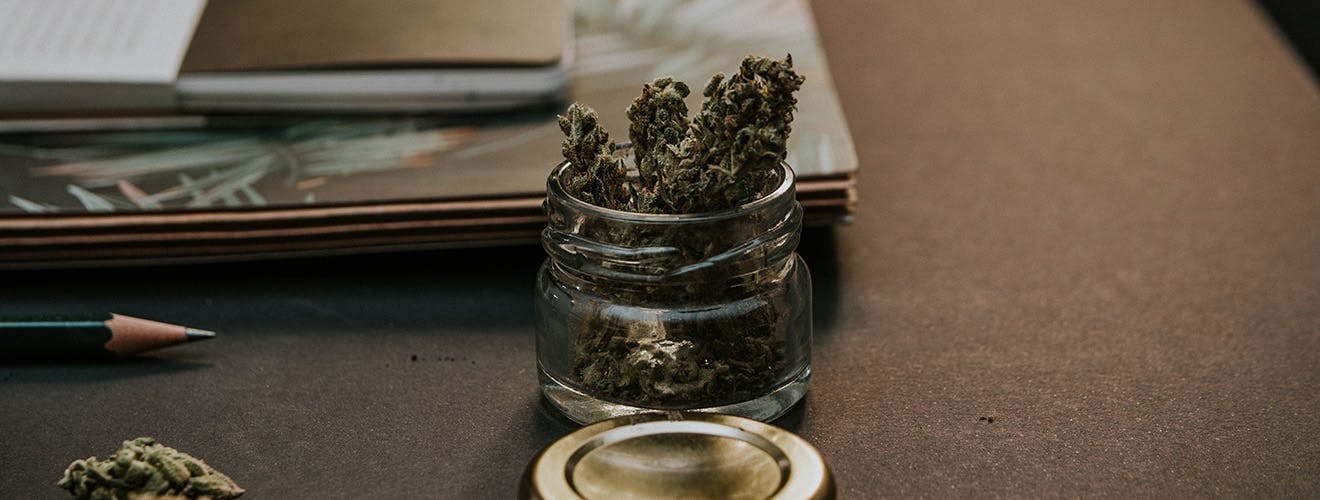Using Weed For Sleep Along With a Few Safe Alternatives
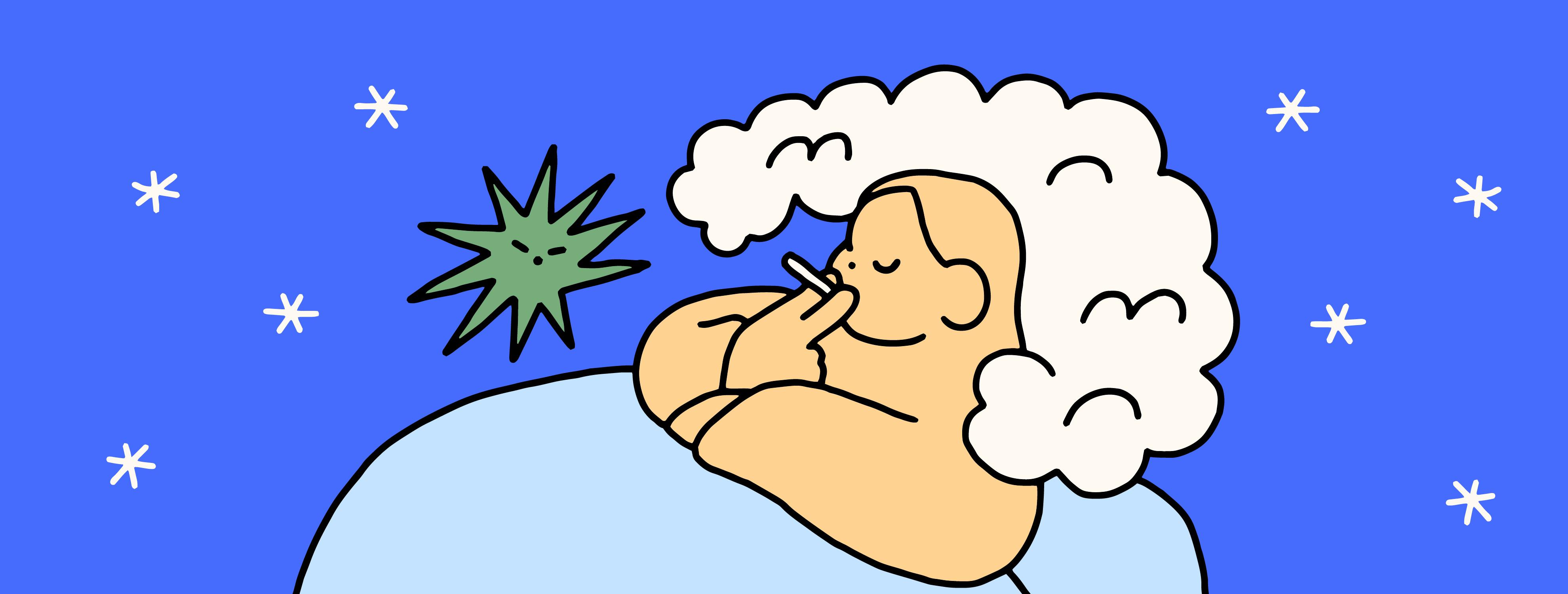
Have you ever been curious about using weed for a good night's sleep? Those who can tolerate and enjoy the effects of marijuana might be curious about using it as a sleep aid alternative. After all, studies have shown its ability to manage symptoms that may otherwise keep us up at night. In this guide, we'll cover best practices on how to use weed for sleep, and offer a few safe alternatives.
Most marijuana users can speak to how cannabis can relieve pain, promote relaxation and ease anxiety. For some folks, the physical and cognitive benefits that come with lighting up a joint or popping a gummy before bed are significant. However, different strains of cannabis will induce sleep or affect sleep quality in different ways.
Some can help you fall asleep faster, but do not necessarily aid much in promoting sleep throughout the night. On the other hand, some high THC strains are better used to help keep the mind active and focus on creative projects.
Just like with any other sleep aid, it's important to be aware of the risks that come with using cannabis. Read on to learn the dos and dont's of using marijuana for sleep, including how to choose the right method and strain for sleep.
CBD Vs. THC
Before we dive into it, let's first make the distinction between CBD (Cannabidiol) and THC (Tetrahydrocannabinol). One major difference is that CBD is generally legal in all 50 states as it does not fall under the category of illicit recreational drugs. Even though CBD is derived from the same cannabis plant that produces THC, it does not create the same high as the psychoactive drug.
CBD has become a major buzzword in the health and wellness world over the last few years. E-commerce brands offer everything from CBD supplements to CBD tinctures and gels. Hell, you purchase even get a CBD suppository if the calling strikes.
While it may have relaxing properties, the chemical compound CBD actually blocks the psychological effects associated with THC. According to leading medical associations, it is non-habit forming and isn't connected to any withdrawal symptoms.
THC, on the other hand, is the chemical compound responsible for the psychoactive effects you feel when you smoke marijuana or consume cannabis. It binds to receptors in the brain responsible for memory, pleasure, and time perception. It releases dopamine to create a sense of euphoria and relaxation in the user.
While CBD can be a calming agent, it does not typically have such profound effects on sleep quality as THC does. But even within the world THC, different concentrations, and strains can influence one's sleep cycles differently.
How Does Weed Help You Sleep?
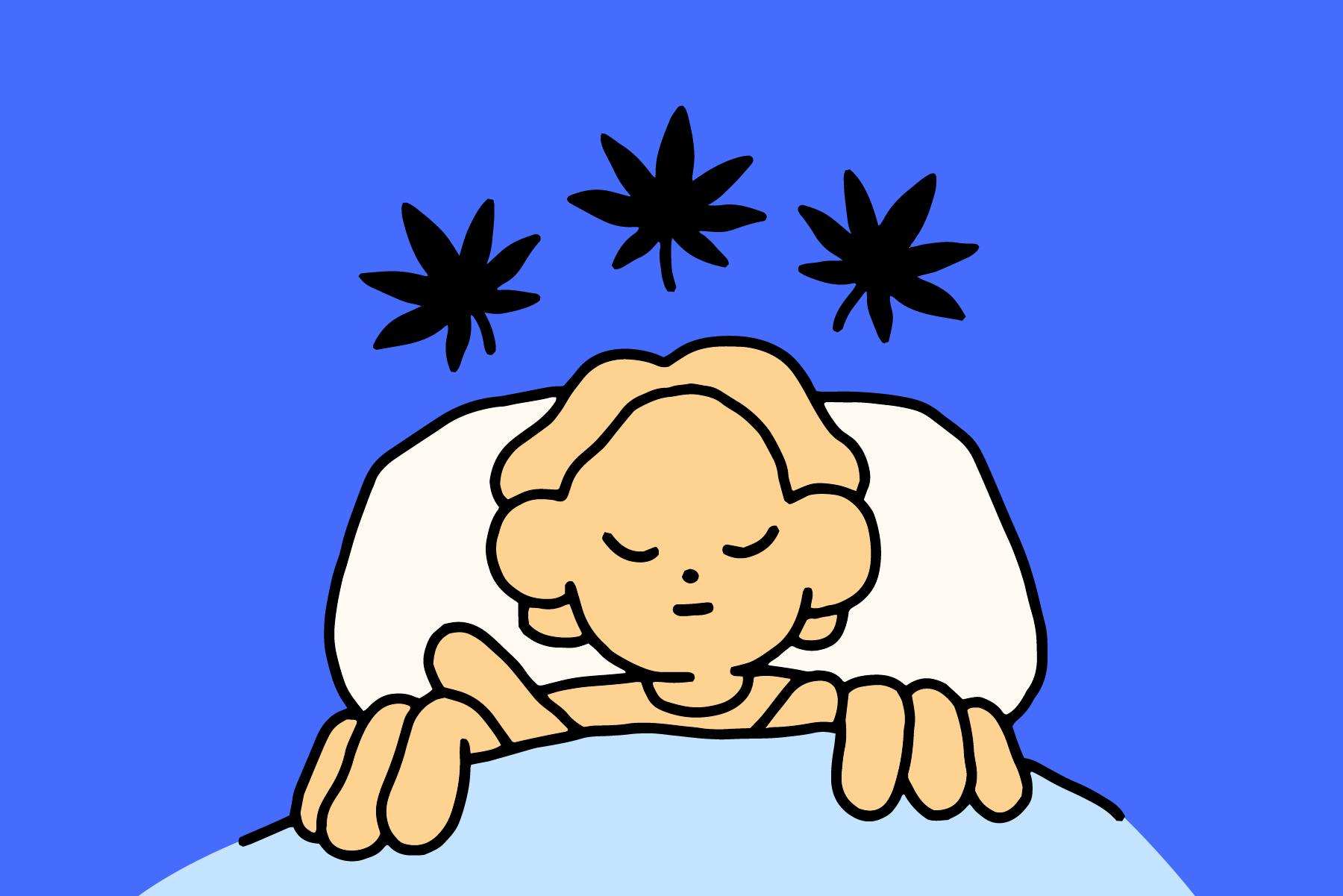
Because of the illicit drug status of marijuana in the majority of states, cannabis use to treat sleep disorders still isn't exactly mainstream. But there is plenty of information in the medical literature that shows a positive correlation between healthy volunteers who use medical cannabis and its ability to relieve poor sleep symptoms.
According to the Sleep Foundation, out of the many young adults who casually use cannabis, 70%, say that they use it as a sleep aid. About half of long-term marijuana users, those who have used it regularly for ten years or more, say that it helps when they experience trouble falling asleep.
Cannabis research also finds that marijuana can improve sleep in people with certain health conditions. People suffering from post-traumatic stress disorder and chronic pain often exhibit sleep problems as a symptom of their larger health issues.
Weed And Chronic Health Conditions
Ryan Vandrey, Ph.D., professor of psychiatry at John Hopkins suggests that THC can promote sleep in PTSD patients, and can potentially produce fewer nightmares.
A 2008 medically reviewed report found that cannabis use reduced the amount of REM sleep (rapid eye movement sleep), the sleep period where you experience your most vivid dreams. By reducing REM sleep, you also reduce the possibility of nightmares. For PTSD patients, cannabis use can be an appealing alternative for people who frequently experience treatment-resistant episodes.
There are also studies to suggest people who use cannabis before bed stay asleep longer and wake up less throughout the night. The medical use of synthetic cannabinoids has also shown some promising results in easing obstructive sleep apnea.
While obstructive sleep apnea is more frequently seen in older adults and people with obesity, the condition can present itself in any age group. Sleep apnea creates sleep disturbances like snoring, reducing the quality of nocturnal sleep, and it can affect early morning behavior through increased risk of daytime tiredness. Sleep apnea can potentially get better over time with weight loss, decreased alcohol consumption, and physical exercise.
Among other sleep disorders, a recent clinical psychopharmacology report also found that cannabis use can alleviate symptoms of restless leg syndrome. This chronic condition typically affects women and is defined by the constant urge of the sufferer to move your legs.
Cannabis Use and Pain
Pain is also a major sleep disruptor. THC use has also shown promise in pain relief and an appealing safer alternative to opioids. This has especially been shown to be true with chronic pain and neuropathic pain. However, it works better for those who smoke marijuana, as opposed to ingesting it.
Cannabis even has anti-inflammatory properties. People who suffer from inflamed joints or bowels, caused by chronic illnesses like Crohn's Disease, deal with great amounts of pain that impact their day-to-day life. Marijuana compounds can potentially relieve the symptoms that cause inflammation and pain in these patients, and help them get a better night's sleep.
Ever since the dangers of opioids have surfaced, many pain sufferers find that cannabis use has helped them wean themselves off prescription painkillers. A 2020 study looked at individuals who relied on opioids for over a decade. With cannabis use, about half of the participants were able to stop opioid use altogether.
Marijuana is an effective sleep medicine for many groups of people, including those afflicted with chronic health conditions. It can potentially promote deep sleep in people who suffer PTSD, pain, and other sleep disorders.
In the next section, we will review strains, concentration, and methods of use, and their effectiveness in promoting better sleep.
Indica vs. Sativa vs. Hybrid
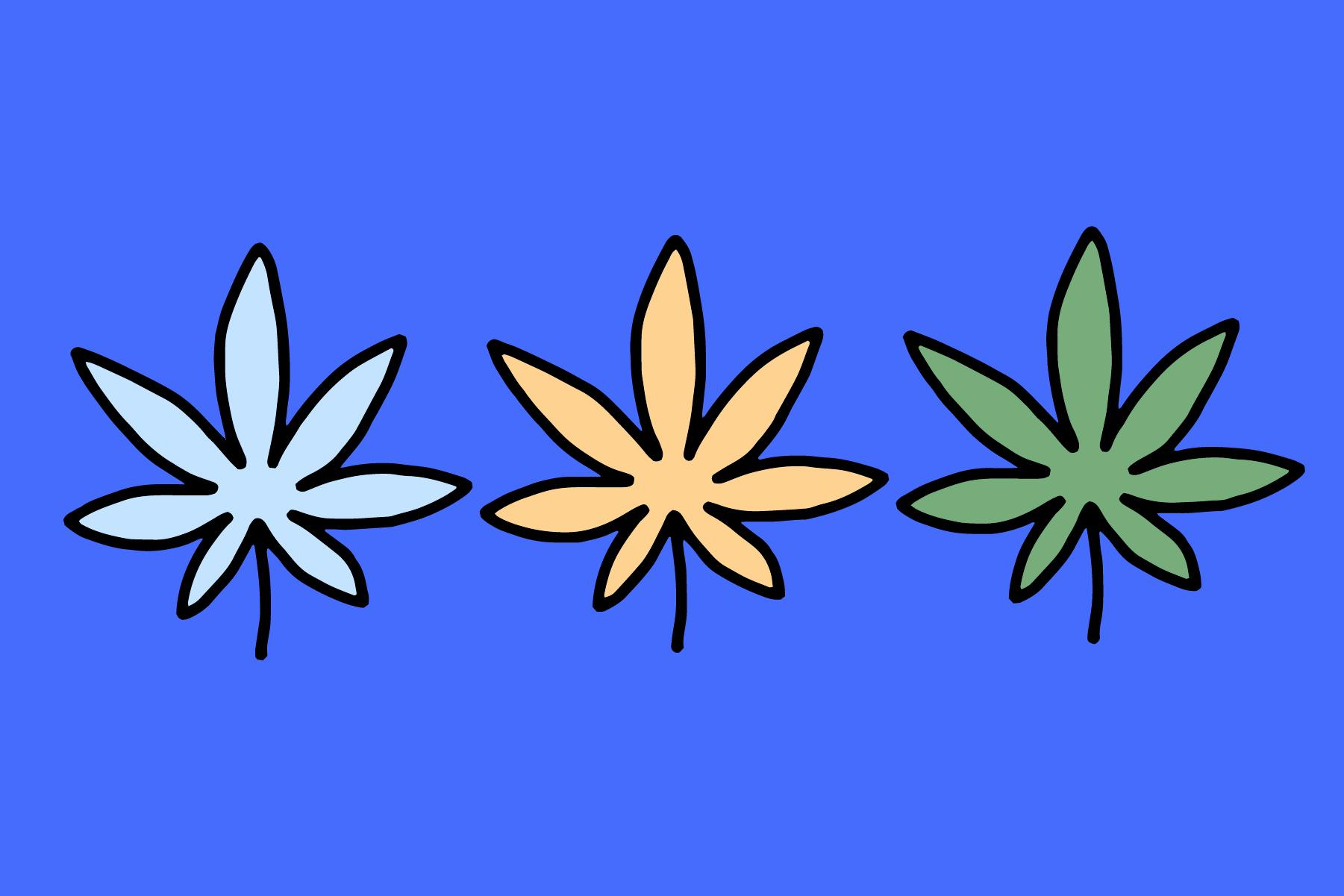
As we learned in the previous section, marijuana use can help alleviate a host of sleep-related issues. While CBD, the non-psychoactive derivative of marijuana, can have relaxation benefits, it does not deliver the same sedation and deep sleep effects as THC. However, it could be a combination of the two that provides the best method for falling asleep and staying asleep.
Not every strain of marijuana helps promote sleep the same way, and the percentage of THC can affect how it helps ease a sleep disorder.
Marijuana is most often categorized into three categories: Sativa, Indica, or a hybrid of the two. Many cannabis users find that Indica provides the greatest sleep benefits.
What Strain is Right For Me?
Sativa-dominant compounds tend to promote alertness and creativity, while Indica dominant strains are known to have more sedating qualities. If you're using marijuana specifically to help you fall asleep, you will want to ask your local dispensary for an Indica or Indica-dominant hybrid strain.
If you're new to THC, it's better to stick to a lower dose to see how your body and mind will react to the drug. If you are plagued by sleep disorders, it may also be better to consume cannabis through an edible than to smoke cannabis. Digestive absorption of THC can last longer, and the effects may come on more slowly, helping you sleep throughout the night.
The best Indica strains for sleep aids tend to have a THC concentration of less than 35%. Some of the top products include:
- Hindu Kush
- Grandaddy Purple
- Grape Ape
- Girl Scout Cookies
How Effective is Marijuana as a Sleep Aid?
As stated previously, the illicit drug status of marijuana allows for limited research. What we do know is that community-based young adults, Gen Z, and Millenials, who use cannabis on a regular basis find that its effects increase sleep quality and decrease anxiety and depression disorders. Many medically reviewed journals back up this idea.
According to the Sleep Foundation, short-term marijuana use can increase your time in deep sleep, the point in your sleep cycle that has the most regenerative effects. It also generally affects the sleep architecture by altering the amount of time you spend in different sleep stages. From rapid eye movement dream-induced sleep to the brain power-down associated with deep sleep.
How Long Does it Take to Fall Asleep?
To determine how long it will take you to fall asleep, you need to consider the manner of intake. When you smoke cannabis the effects hit your system much quicker. Ingesting cannabis through tincture or edible has more long-lasting effects. According to medically reviewed studies, marijuana smoking can cause immediate effects on sleep and it may be better to attempt sleep within the first 30 minutes of inhalation.
For edibles, it may be better to consume cannabis a few hours before bedtime and then attempt to sleep.
Best Ways to Ingest Marijuana Before Bed
Regular smokers may be more accustomed to the immediate high that comes with smoking cannabis. However, consistently smoking marijuana does cause damage to the lungs. It is associated with acute bronchitis and the tar buildup known to damage the cell lining of the lungs.
This being said, if you do decide to take cannabis to help you sleep, you may want to consider vaping, eating an edible, or using a cannabis tincture.
Risks of Weed For Sleep
The use of marijuana for sleep disorders isn't for everyone. People with high blood pressure and cardiac issues should be cautious about using marijuana before bed. Cannabis increases blood pressure immediately after use. An increase in blood pressure can cause strain on the heart and be potentially harmful to those suffering from cardiovascular issues.
As stated in the previous section, smoking cannabis can also cause respiratory issues in long-term users. If you already have breathing issues, smoking marijuana may not be for you.
Marijuana should also be avoided in people under twenty-five. In adolescents, cannabis can affect the brain structure, by altering neural pathways. By decreasing these neural connections, cognitive function can decrease. Teenagers who consistently smoke weed can score 5.8 points lower in IQ.
The center for disease control, the CDC claims that long-term marijuana use can cause more disruption to sleep. Just like with any drug, long-term use can build up a tolerance and require higher doses to maintain the same effects. As stated previously, higher doses of THC are not recommended for a good night's sleep.
Weed Alternatives to Consider
Marijuana isn't for everyone. While there are some benefits associated with sleep if used sparingly, it isn't recommended as a long-term solution. Luckily, there are safer, legal, and non-habit-forming alternative solutions.
Sandland Sleep offers products that help you fall asleep, stay asleep, and generally help you become more relaxed for your bedtime routine. While most sleep aids work by knocking you out, causing grogginess the next day, Sandland Sleep works with your body's natural circadian rhythm and coaches your body into healthy sleep habits.
If you have trouble getting sleepy at night, Sandland Sleep Fall Asleep under-tongue tabs, help you fall asleep within fifteen minutes. The tabs only use a small amount of melatonin, which doesn't provide the morning hangover that typical melatonin tablets do.
If you're looking to stay asleep, Sandland Sleep Stay Asleep, kicks in an hour and can provide up to eight hours of quality sleep, without disruption. We also offer a discounted bundle, The Sleep Set, to help you fall asleep and stay asleep throughout the night.
If weed just isn't your thing, you may want to consider Sandland Sleep as a safe alternative to a healthy night's sleep that works with your body's natural urge to sleep.
THC is known to affect your REM sleep or the sleep stage where you experience dreaming. By limiting this stage, it helps bring you into the more regenerative state of deep sleep.
It is not recommended to take sleeping pills with cannabis if you're trying to fall asleep. This is even true for sleep supplements like melatonin. Weed already naturally increases your melatonin levels, so if you take melatonin on top of it, you can experience melatonin overdose. Though the symptoms of this aren't dangerous (morning tiredness and lack of concentration throughout the day), it is not recommended.
Indica and Indica dominant hybrids have shown the most promise for promoting sleep. However, THC concentrations vary in Indica strains. You want to aim for under 25% THC. Ask your local dispensary for low dosage THC Indica strains. Typically, Hindu Kush, Granddaddy Purple, and Grape Ape are good low-dose Indica strains.
Like with many sleep aids, marijuana can cause a dependency and require higher doses to achieve the same effects. Also stopping after long-term use can cause cannabis withdrawal. If curious about using marijuana to help you sleep, please consult your doctor before trying it out.
